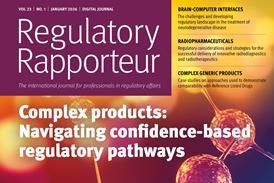In 2024, the Medicines and Healthcare Regulatory Agency (MHRA) approved a product license for Lecanemab to help treat the early stages of Alzheimer’s disease. However, the National Institute for Health and Care Excellence (NICE) has recently announced that it will not back funding for the drug due to concerns about its effectiveness.

In Alzheimer’s disease, amyloid beta protein can form plaque in the brain. Lecanemab is a monoclonal antibody that binds to amyloid beta and slows the development of the disease.
According to a 2024 report from the MHRA which explained the background of the clinical trial, patients were given a 10 mg/kg dose of Lecanemab once every two weeks. After 18 months of this trial, the MHRA reported a ‘statistically significant reduction in amyloid beta plaque levels in the brain for Lecanemab.’
However, while treatment was shown to be effective, the results also revealed that for some patients, Amyloid Related Imaging Abnormalities (ARIAs) in the form of brain swelling and bleeding occurred, and symptoms were serious.
It was discovered that some patients were at a risk of severe symptoms and so ‘testing for the APOE4 gene should be carried out before treatment.’
Furthermore, according to a review from the National Library of Medicine, the efficacy of Lecanemab has been seen to be positive across numerous studies. However, there also appeared to be a very high variation in side effects and adverse events during treatment and it was highlighted that there is a need for continuous monitoring.
In our September 2024 poll, 47% of respondents said that NICE shouldn’t approve the new Alzheimer’s drug Lecanemab for use in the NHS. This suggests that there are public concerns about the drug, which have nowalso been recognised by NICE.
In a report published on 19 June, Helen Knight, Director of Medicines Evaluation at NICE, said that ‘the committee concluded the small benefits of Lecanemab shown in the clinical trials and the lack of long-term evidence of effectiveness’ were not sufficient enough for NICE to approve funding.
NICE has taken several factors into consideration, such as the benefits and the costs required to administer the treatment. Overall, NICE has decided not to proceed with funding.
An appeal against the final draft guidance is currently ongoing. For more information, refer to the NICE website.































